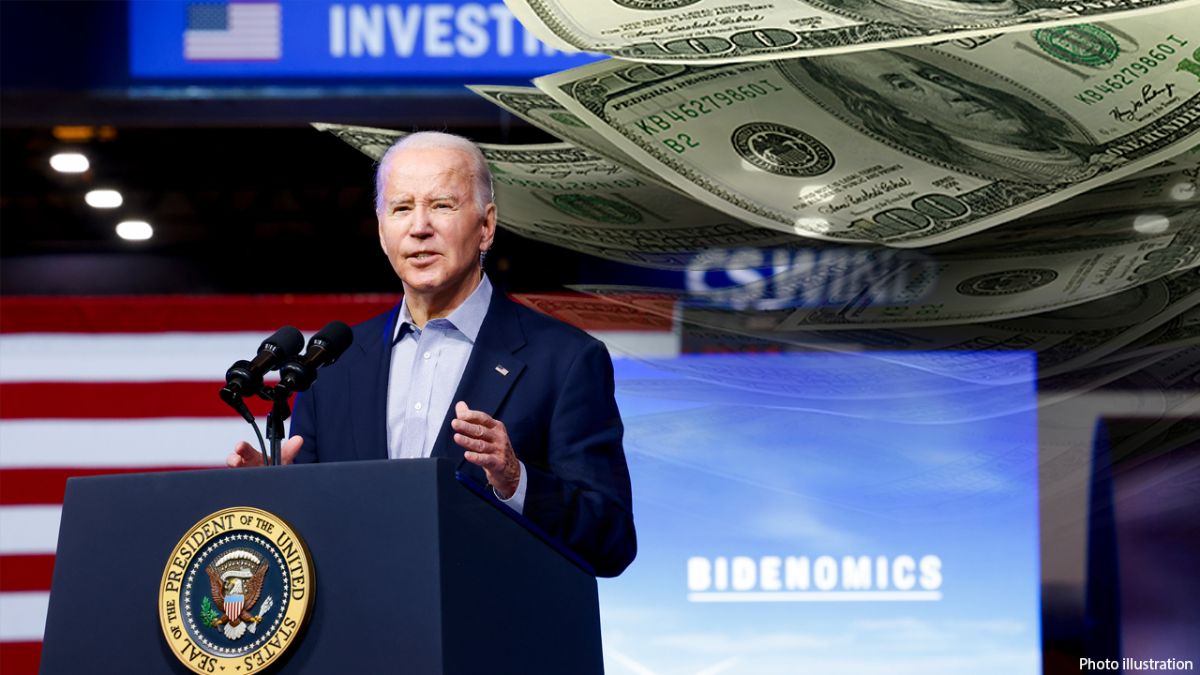President Biden asserted on Wednesday that inflation was rising when he took office in January 2021, despite federal records proving otherwise.
The latest consumer price index (CPI) reading, which showed that annual inflation increased faster than predicted for the third consecutive month in March, immediately prompted Biden’s comments. In response to a question about inflation remaining high, he stated that the rate of price increases has decreased in the last two years and claimed that he inherited the economic challenges.
“Look, we’ve cut inflation from 9% to around 3%. We’re in a better position now than we were when we began office, when inflation was rising,” Biden told reporters during a press conference on Wednesday.
He said that his administration had a “sustainable plan” to combat inflation, but Republicans are primarily concerned with lowering taxes for the wealthiest while raising taxes “on other people.”
However, according to Bureau of Labor Statistics figures, inflation was only 1.4% in January 2021, when Biden took office. It remained below 3% until April 2021, when it jumped 4.2% and rose steadily until it reached a 40-year peak of 9.1%.
Since then, the CPI has consistently fallen, falling month after month until December, when it increased from 3.1% to 3.4%. Inflation decreased again in January, but then rose to 3.2% in February and 3.5% last month, according to figures released on Wednesday.
Persistent inflation levels augur poorly for US economic prospects and may eventually prohibit the Federal Reserve from cutting interest rates in the coming months. The Federal Reserve normally attempts to keep inflation around 2%.
“When the President took office, the pandemic was dramatically disrupting our economy—from our supply chains to spending patterns,” White House spokesperson Michael Kikukawa told FOX Business in a statement. Russia’s war in Ukraine exacerbated the global inflation that resulted from this. In reality, several other countries saw considerably higher inflation.
“That’s why President Biden took historic action to fight inflation—ffrom his aggressive work on supply chains to releases from the Strategic Petroleum Reserve,” the vice president said.
Overall, high inflation has put considerable financial strain on most US households, forcing them to pay more for basic necessities like food and rent. Low-income Americans bear a disproportionate share of the expense, as price swings have a significant impact on their already squeezed paychecks.
Housing and fuel prices were the primary drivers of inflation last month, accounting for more than half of the overall monthly increase.
Rents increased by 0.5% this month and are up 5.7% from the same time last year. Rising rents are troubling because higher housing prices have a direct and acute impact on household budgets. Gasoline prices rose 1.7% in March. They are up 1.3% compared to the same period last year.
“This was a painful report with few bright spots for consumers,” said Robert Frick, a corporate economist with Navy Federal Credit Union.

